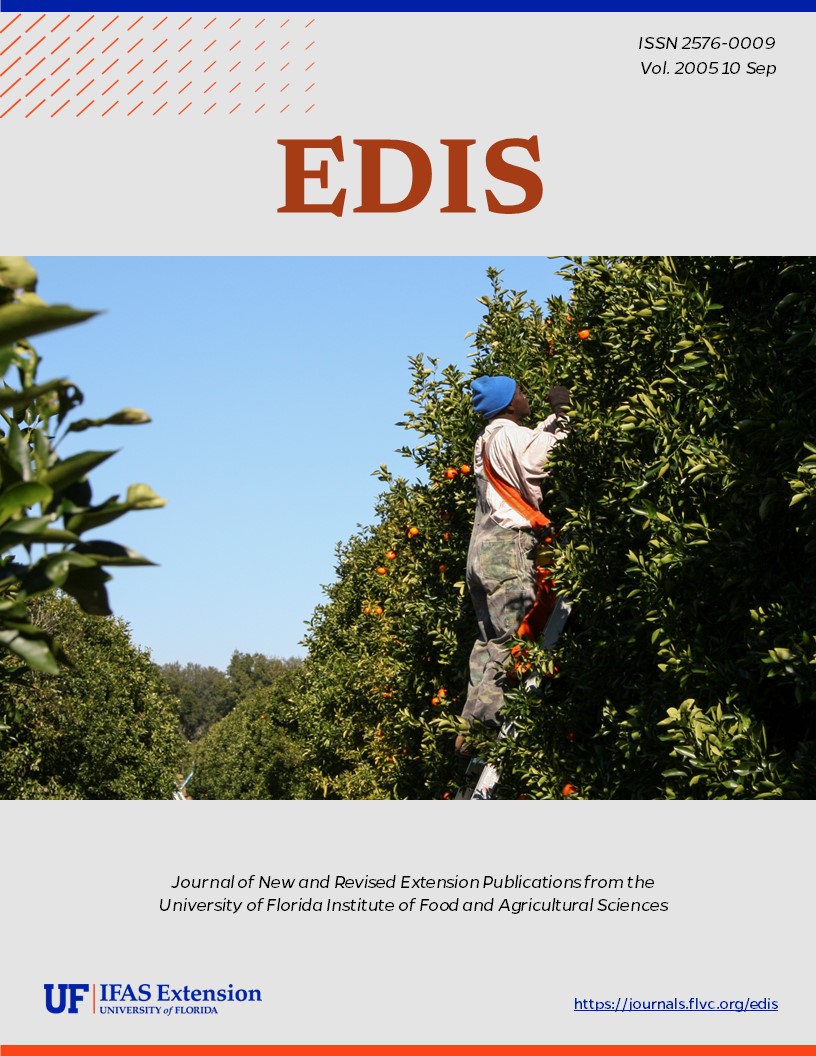Resumen
The rapid growth of Florida's hard clam industry over the past decade has motivated aquaculturists to explore alternative molluscan species, which could reduce exposure to production risks and simultaneously promote market expansion. Species diversification could possibly provide some degree of protection against potential disastrous losses associated with a monoculture-based industry. Further, production of other molluscan species could potentially increase sales and profitability, expanding clam consumers' options. The Blood Ark (Anadara ovalis) and the Ponderous Ark (Noetia ponderosa) clams represent two possible production opportunities. This is EDIS document FE568, a publication of the Department of Food and Resource Economics, Florida Cooperative Extension Service, Institute of Food and Agricultural Sciences, University of Florida, Gainesville, FL. Published August 2005.
Citas
Applewhite, L., W.S. Otwell and L. Sturmer. 1996. Survival of Florida Aquacultured Clams in Refrigerated Storage. Proceedings of the Twenty-first Annual Conference of the Tropical and Subtropical Seafood Science & Technology Society, St. Petersburg, FL.
Applewhite, L., W.S. Otwell, L. Sturmer, and J. McNeely. 1997. Survival and Microbial Consequences for Florida Hard Clams through Tempering and Refrigeration. Final Report to Florida Department of Environmental Protection, Tallahassee, FL.
Degner, Robert L., Tiffany B. Southwell, Leslie N. Sturmer, and Kimberly Morgan. 2005. Marketing Opportunities for Blood Ark Clams and Ponderous Ark Clams. Electronic Data Information Source (EDIS) FE478. Department of Food and Resource Economics, University of Florida, Gainesville, FL. http://edis.ifas.ufl.edu/FE478.
Degner, Robert L., Tiffany B. Southwell, Leslie N. Sturmer, and kimberly Morgan. 2005. Marketing Opportunties for Two Ark Clam Species. Industry Report 05-1 (June). http://www.agmarketing.ifas.ufl.edu/pubs/2000-present/Blood%20Ark%20Clams%20Marketing.pdf.
Horwitz, W. (editor). 2000. Official Methods of Analysis of AOAC International, 17th edition. Gaithersburg, MD: Association of Official Analytical Chemists (AOAC).
U.S. Food and Drug Administration. 2003. National Shellfish Sanitation Program: Guide for the Control of Molluscan Shellfish. United States Food and Drug Administration, Washington, D.C. http://www.cfsan.fda.gov/~ear/nss2-toc.html; http://www.cfsan.fda.gov/~acrobat/nssp2003.pdf

